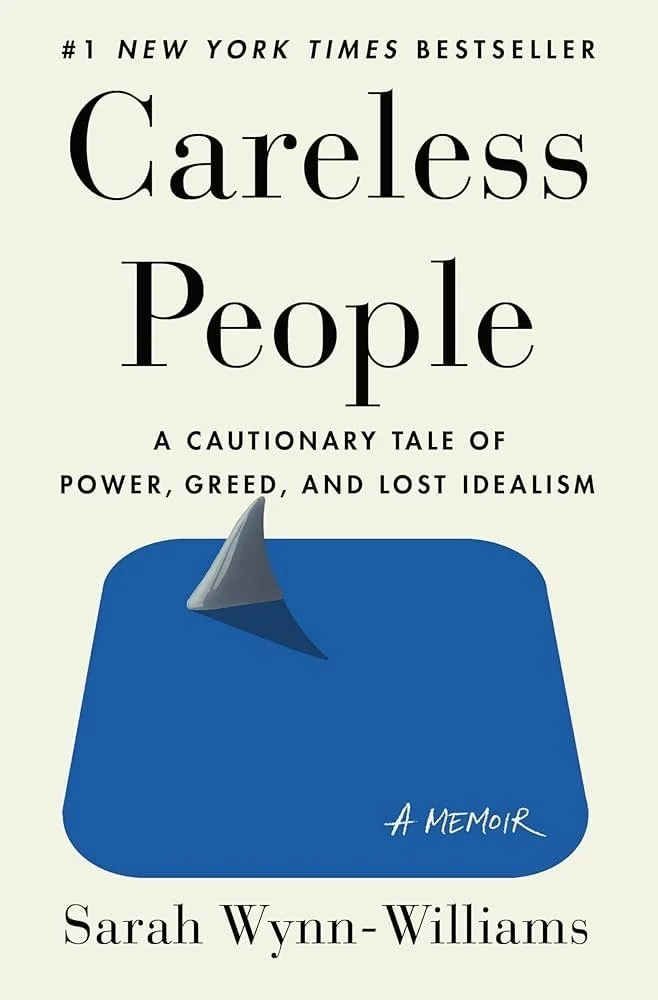I’m appreciative of the regular readers who peruse this blog, share it with colleagues and who leave thoughtful commentary. My fragile ego thanks you.
In truth, I often write these posts to test my logic, force myself to articulate or defend a position and to commit the errant thoughts in my head to (digital) paper. Mostly to see if they can withstand scrutiny and God’s disinfectant, bright sunlight.
This post is one of those.
So, with that early legal disclaimer, stay for the ride or this is your off-ramp to disembark. I’m sure there’s a readily accessible rerun of “Family Guy” or “Modern Family” to lift your mood.
Here’s my hypothesis – with two recent examples – and I’d love you to give me your POV.
Our elected officials play an important role in monitoring, legislating, taxing or fining how our organizations operate.
They can’t pollute our air and water, fill our food with poisons, sell cigarettes to minors, create and sell defective products etc etc by virtue of those governmental watchdogs and laws.
However, those protections are levied on controlling the outcomes of what our organizations produce. Outcomes are really just the things they make or the externalities of making those things.
Why aren’t we as rigorous about the inputs to our organizations?
The upstream stuff. The stuff that legislates how these organizations behave and make decisions.
The stuff that helps inform and form the culture of these organizations.
Reminder, culture is the implementation layer of your strategy. It’s the interconnected set of shared systems, beliefs, leadership, experiences that create the environment in which a million decisions are made – or avoided – by your employees each day to bring that strategy to life.
Here’s the kicker.
The decisions they make, or avoid, are an extension of if your people feel safe doing so.
If it feels safe to talk truth to power, they will. If it doesn’t, you’ve employed a legion of French mimes. Metaphorically.
If it feels safe to fail, they’ll experiment, transform, innovate. If it doesn’t, enjoy the status quo or the incrementalism you’ve enabled. Just don’t grumble about it.
So back to my original question – is there a benefit or need to have a 3rd Party step in to modify or change the elements that create a corporate culture?
To change the inputs of systems, beliefs, experiences AND LEADERSHIP that give rise to the organizational cultures we see around us.
Some recent examples to contemplate.
Air Canada, Canada’s flag carrier, shut down global operations and stranded tens of thousands of Summer travellers on the heels of a walkout strike by their stewards. At the heart of the dispute – which had been in strenuous and acrimonious negotiations since January – was the desire by the union for their members to be paid a “livable wage”. Unusually that emotionally loaded term – livable wage - was not union hyperbole but the truth. As this stand-off unfolded, I watched two unusual things occur. One, the majority of public sentiment sided with the Union and against Air Canada. On a personal note, even though I was stranded in Mexico City, I found myself being angry at Air Canada executives (and their monstrous bonuses) – that was a first. Secondly the tone-deaf communications and deflections by Air Canada highlighted how broken the systems, beliefs and leadership – the culture – of the airline is. Saying “this is an industry standard” sounded like the corporate equivalent of the dog ate my homework and a complete abdication of executive accountability. In short, with a culture like this, a strike wasn’t conceivable, it was inevitable.
In a more troubling example, leaked memos from Meta show an organization that has given the greenlight to the developers to create AI chatbots that can mimic sexual interactions with minors and provide validation to Meta users seeking confirm negative racial stereotypes. (Link to Reuters coverage here) All, no doubt, in order to drive heightened discourse and growth for Zuckerberg et al and close the widening AI gap between Meta and many others in the AI game. After decades of highly-publicized whistleblower testimony and scathing tell-all memoirs, the fact that this memo was distributed, let alone even put to paper, saddens but doesn’t surprise me.
For an organization with a culture that seems intent on gleefully setting societal wildfires that destroy the fabric of our discourse and mental health, we seem bizarrely reticent to take the box of matches away from them.
Why is that?
Small and isolated (Air Canada) or large and global (Meta) why are these cultures – and the deliberate behaviours and decisions beneath them – allowed to run unchecked?
I can hear the Gordon Gekko and Milton Friedman acolytes say, “stay out of their business” and there is some validity to letting businesses rise and fall under the weight of how they choose to operate.
The Erin Meyer cohort would likely say “which cultural norms should we legislate these organizations under?” Another legitimate argument. Case in point we’ve seen the EU take a much stronger legislative, even adversarial, position against Big Tech stretching back to large Microsoft fines and injunctions against business behaviours by Google et al. Should we let Brussels set the cultural tenor and tone of a company based in Menlo Park? For two “cultures” who can’t agree on important issues like whether ketchup or mayonnaise tastes better with fries, how likely is that?
Perhaps the larger question I’m grappling with is what is the societal impact of letting these organizations create cultures that have such obvious negative outcomes.
If we can, I pray, agree that a livable wage is justifiable – and creating chatbots to entice minors is not – then where does the proverbial buck stop?
Like Scott Galloway opines, it seems foolhardy to expect the “better angels” of these executives to miraculously appear. Perhaps a few arrests and publicized “perp walks” are what’s needed to jolt the system back.
For the record I’m a card-carrying capitalist who believes that hard work, commitment and graft should bear fruit for those who put in the cycles.
It just can’t be without guardrails and consequences for those who obviously exploit or ignore common decency and humanity.
As my good buddy John once sang “You may call me a dreamer but I’m not the only one”
If you’ve followed the bouncing ball, or the White Rabbit, this far I’m fascinated to hear your thoughts on executive accountability and if legislating corporate culture is a misguided idea – or something we need urgently.
Operators are standing by.
Two quick points.
1. You’ll notice I make no reference to the ability (or appetite) of certain government administrations to address versus exacerbate the current situation. That’s a 3rd Rail I aint gonna touch.
2. The masthead image was a very deliberate choice as is the well-known missive from that superlative comic series – “who will watch the Watchers?” Another 3rd Rail I’m steering well clear off.



